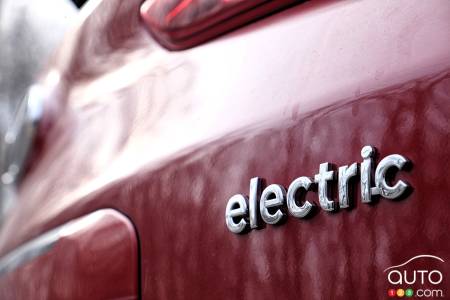It’s not uncommon to hear the argument advanced that electric cars are as harmful to the environment as combustion-engine vehicles in terms of their lifetime emissions – which take into account the manufacturing process and added electricity generation.
Numerous studies have proven that this is not true, but more confirmation comes from a new study out of the U.K. and published this week by the BBC. The belief that electric cars may actually increase carbon emissions is a harmful myth, according to the new research.
In recent months, a number of studies and reports have sought to answer the question: are electric cars really 'greener' once the emissions from manufacturing and electricity generation are accounted for?
Recent research concludes that in most regions on the planet, electric cars produce fewer emissions overall, even though the use of fossil fuels is often part of the equation for electricity generation.
On top of this, other studies caution that in order to meet climate goals, it will also be necessary to limit travel.
Auto123 launches Shopicar! All new makes and models and all current promotions.
New research from the Universities of Cambridge and Exeter, Nijmegen, in the Netherlands, shows that in 95% of places around the world, driving an electric car is better for the climate than driving a petrol-powered car.
The only exceptions are places like Poland, where electricity production is still mainly based on coal.
Lifetime emissions
Researchers participating in the study found that the average lifetime emissions of electric cars are up to 70% lower than those of combustion-engine vehicles in countries such as Sweden and France, where most electricity comes from renewable energy and nuclear power). In the UK, the figure is closer to 30%.
The study also concludes the advantage of electric cars in this regard will gradually increase as countries switch to clean electricity.

It predicts moreover that by 2050, one out of every two cars on the road worldwide could be electric. This would reduce global CO2 emissions by up to 1.5 gigatons per year, which is equivalent to Russia's current total CO2 emissions. And that switch to electric could happen even faster if countries adopt stricter targets. The UK, for example, has regulated that by 2035 every new car sold should be emissions-free.
“The idea that electric vehicles could increase emissions is a complete myth… We have run the numbers for all around the world, looking at a whole range of cars and even in our worst-case scenario, there would be a reduction in emissions in almost all cases.”
- Dr Florian Knobloch of the University of Nijmegen, lead author of the new study

Unresolved problem
But that does not mean that the problem of cars and the environment is solved. Several obstacles remain:
- Migrating national car fleets to electricity in time to meet the climate targets set by many European countries will be a daunting challenge.
- The strain on the production and supply of clean energy will be heavy.
- Even on electric cars, the abrasion of tires and brake components will continue to create pollution in cities.
Professor Greg Marsden of the Institute of Transport Studies at the University of Leeds in the U.K. had this warning:
“Electrification is necessary but not enough. Travel demand reductions of at least 20% are required, along with a major shift away from the car if we are to meet our climate goals. This implies a really major social change. That is why it is a climate emergency and not a climate inconvenience.”
- Prof. Greg Marsden, Institute of Transport Studies, University of Leeds
The new study also looked at residential heat pumps and found that they also produce fewer emissions than fossil-fuel solutions in 95% of regions around the world.
The researchers carried out a life-cycle analysis in which they calculated the greenhouse gas emissions generated not only during the use of cars and heating systems, but also during the production process and waste treatment.
In 53 out of 59 regions of the world, including all of Europe, the United States and China, the results show that electric cars and heat pumps already produce fewer emissions than fossil-fuel solutions.




